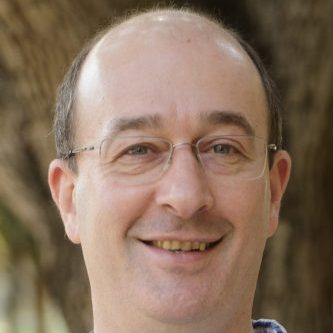ELSC Seminar Series
Home » ELSC Seminar Series » Neuroscience going wild: Neural codes for space in social groups of bats and in bats navigating outdoors on a remote oceanic island

Prof. Nachum Ulanovsky
Neuroscience going wild: Neural codes for space in social groups of bats and in bats navigating outdoors on a remote oceanic island
This talk will focus on the importance of using natural behaviors in neuroscience research – the“Natural Neuroscience” approach. I will illustrate this point by describing studies of neural codes for spatial behaviors and social behaviors, in flying bats – using wireless neurophysiology methods that we developed – and will highlight new neuronal representations that we discovered in animals navigating through 3D spaces or in very large environments, as well as during social interactions. In particular, I will discuss three recent studies: (1) A coding-transformation that we discovered in the hippocampus of bats flying in a very large environment – a 200-meter long tunnel. We found that the neural code for space is transformed from sparse coding in CA3 to dense coding in CA1. The dense code in CA1 (the output of the hippocampus) is superior in terms of spatial coding, while the sparse code in CA3 is superior in terms of learning-rate. (2) A study of hippocampal coding in social groups. We discovered that hippocampal neurons encode the identities of conspecifics across different contexts in a naturalistic colony of freely-behaving bats, representing the sex, social hierarchy, social affiliation, and specific types of social interactions with other individuals. (3) The first single-unit neural recordings in mammals navigating in the wild. We conducted recordings in bats flying outdoors on a remote oceanic island, near Zanzibar – and we discovered that head-direction cells encode the animal’s orientation in a global manner, across the entire island and irrespective of moon movements – suggesting that head-direction cells can serve as a reliable neural compass for real-world navigation. Overall, these three studies demonstrate different levels of experimental control vs. ecological validity in our efforts to understand the neural basis of behavior. I will propose that neuroscience experiments – in bats, rodents, monkeys, or humans – should be conducted under evermore naturalistic conditions, and focusing on natural behaviors.
Seminar Date & Time:
Notifications are sent to ELSC seminar mailing list, subscribe here.
